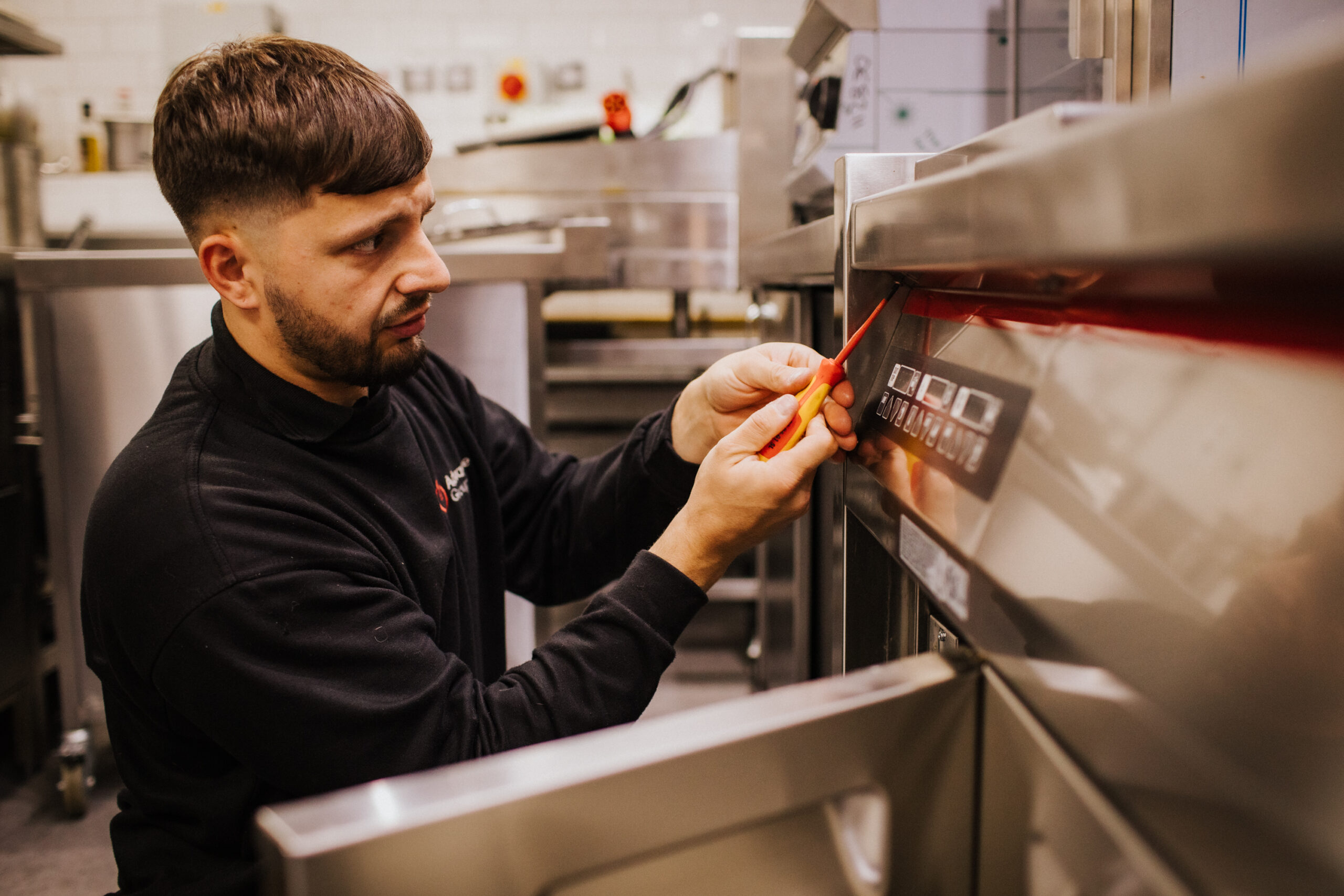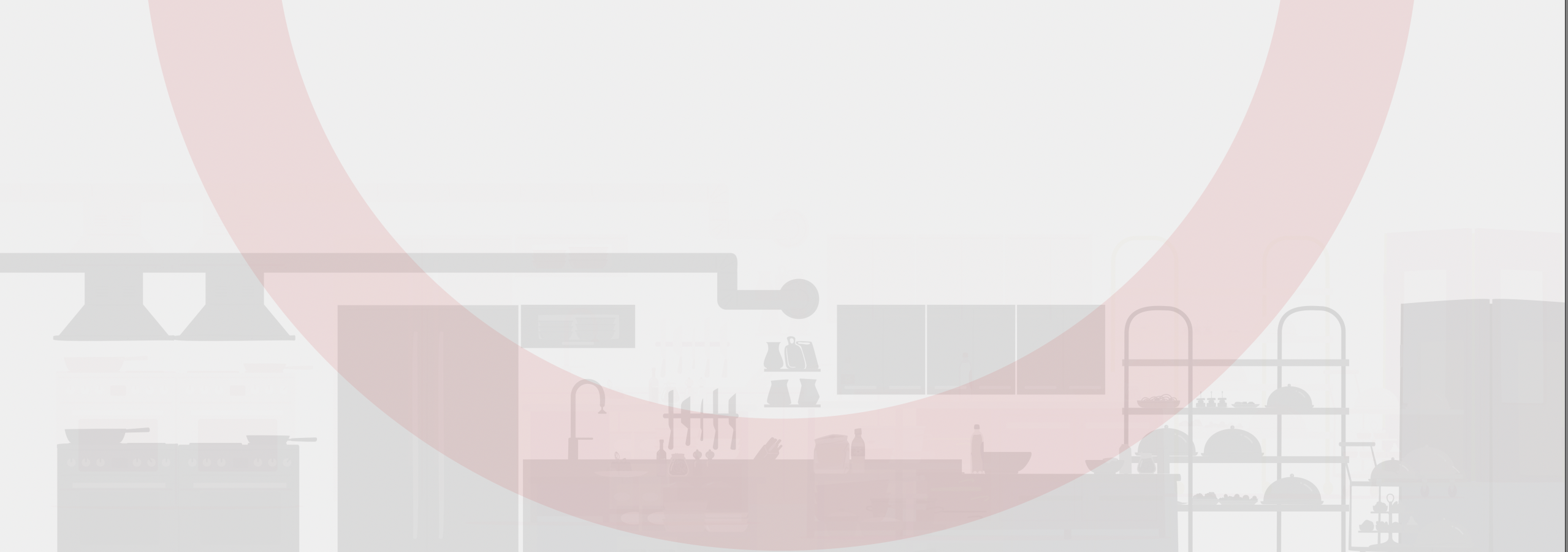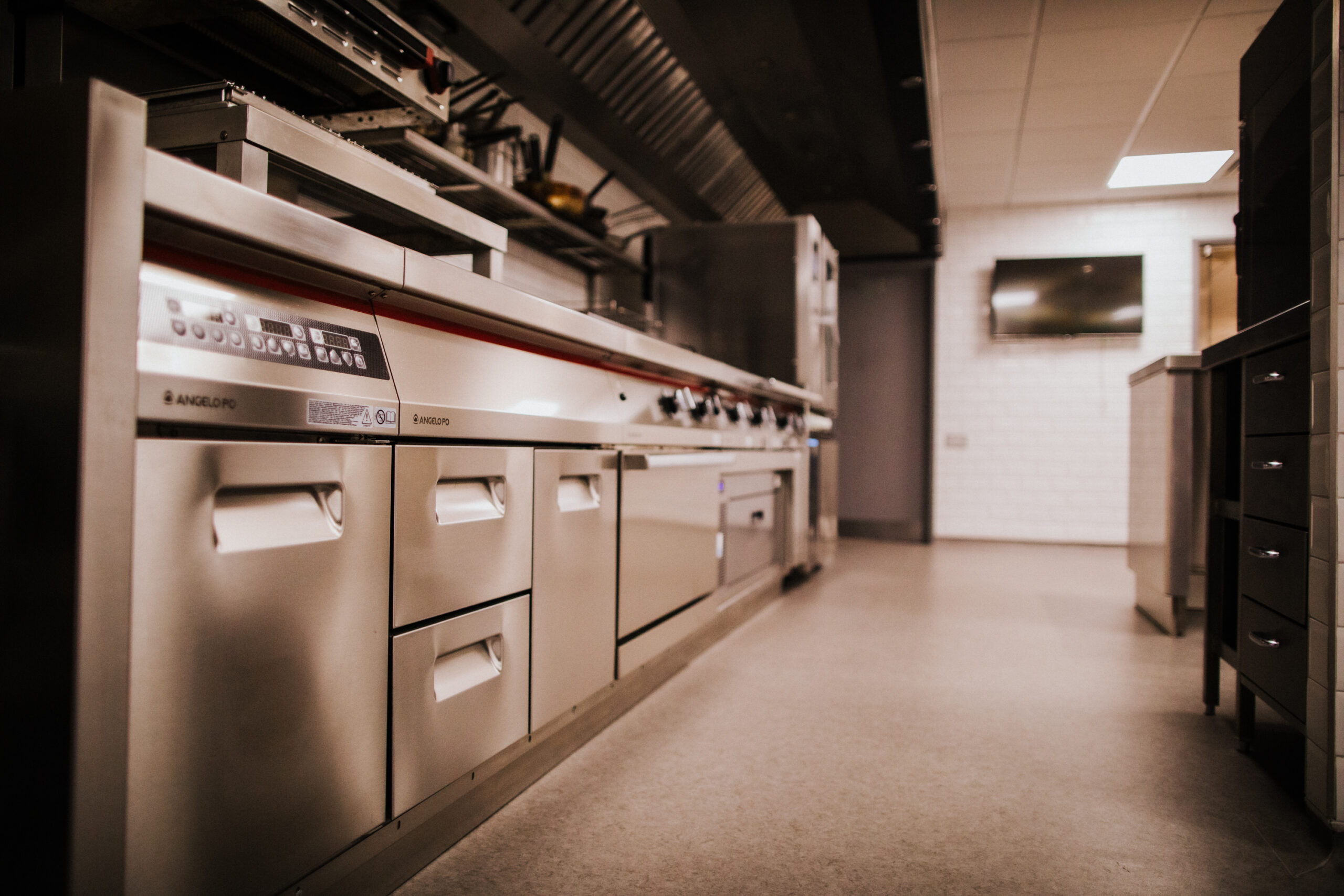
Planned Maintenance


Protect Your Investment
The Power of Preventative Maintenance
In the fast paced world of commercial kitchens, managing costs without compromising on performance is key to long term success. One of the most effective ways to reduce expenses and avoid unexpected downtime is through regular preventative maintenance.
By implementing a routine maintenance schedule, you not only extend the life of your equipment, such as ovens, grills, hobs, refrigeration units and freezer, but also ensure they operate at optimal efficiency. This means fewer breakdowns, lower energy
consumption and better overall performance.
Preventative maintenance allows you to get the most out of your investment, helping you avoid premature replacements and costly repairs. It’s a smart, proactive approach that keeps your kitchen running smoothly and your business profitable.

We Ensure Longevity & Efficiency
Bespoke Planned Maintenance Packages

All to FSG20 Standards

Equipment Training Videos

IKS Insights


Scheduled Consumable Replacements

Optional Cleaning

Full Kitchen Refurbs

Decarbonisation

Bespoke Planned Maintenance Packages

All to FSG20 Standards

Equipment Training Videos

IKS Insights

Scheduled Consumable Replacements

Optional Cleaning

Full Kitchen Refurbs

Decarbonisation
FAQs
Some answers to questions you may have. Check our FAQ section or if you need further information.
Commercial kitchens are legally required to have commercial extractor fans that collect fumes, carbon monoxide gases and grease from the air. Commercial kitchen extractors are usually installed in the form of extractor hoods. Advance Catering will ensure that your commercial kitchen ventilation is optimal for removing impurities to the level required by the Health and Safety Executive and local planning authorities.
There are specific regulations that you are legally required to adhere to when you run a commercial kitchen. These ensure that the kitchen runs in an environmentally friendly, hygienic manner. Your Advance Catering project manager will discuss these with you when planning your kitchen, but broadly they cover the following areas:
- The correct disposal of fats, oils and grease
- Waste disposal and recycling
- Blast chilling – the specific temperatures required to stop bacteria multiplying to unsafe levels
- WRAS (Water Regulations Advisory Scheme) approval for any kitchen equipment connected to a mains water supply
- Food heating – the requirements for keeping food hot during preparation and before serving
- Gas safety – ensuring that your gas appliances are CE marked and approved by a notified body
When planning the size of your commercial kitchen you will need to provision for space between equipment, in front of equipment (including allowing for opening doors), staff to walk around the space freely and the ergonomics of the kitchen for efficient service. There is no strict rule for what size or shape your kitchen should be. Our experts will be happy to plan the layout to meet your requirements.
A commercial kitchen is designed for the production of a vast amount of food, both at speed and to health and safety regulation standards. Commercial kitchens are laid out to ensure that work can be completed as quickly and efficiently as possible, to avoid order backlogs. There are specific requirements for cleanliness and safe food handling, which your Advance Catering project manager will discuss with you during the initial consultation stage. We will plan your commercial kitchen for optimal layout and to meet all regulations.













